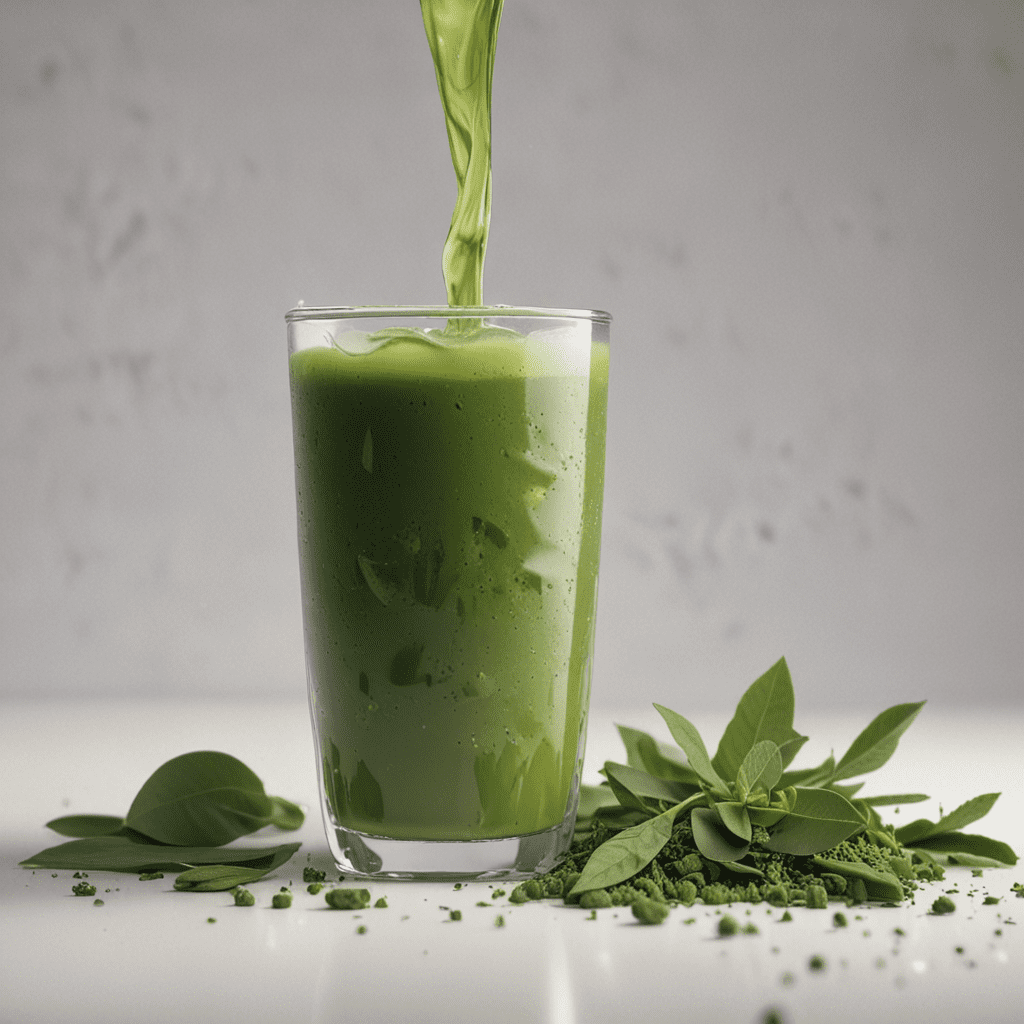
Introduction: The Importance of Liver Function
The liver plays a pivotal role in maintaining overall health, performing over 500 essential functions. Its primary responsibility lies in detoxification, metabolizing harmful substances and removing them from the body. Additionally, the liver produces bile necessary for digestion, synthesizes proteins, and stores essential vitamins and minerals. When the liver functions optimally, it ensures the body's efficient operation. Conversely, when liver function is compromised, the body's overall well-being can suffer.
Matcha and Liver Detoxification
Matcha, a high-grade green tea originating from Japan, has gained prominence for its potential liver health benefits. Matcha is esteemed for its richness in antioxidants, particularly catechins, which possess robust detoxifying properties. These catechins aid the liver in neutralizing harmful substances, reducing their potential impact on the body.
Matcha's Antioxidants and Liver Health
The liver is continuously exposed to various toxins, including those encountered in food, drinks, and the environment. These toxins can induce oxidative stress, leading to liver damage if left unchecked. Matcha's potent antioxidants, primarily catechins, combat oxidative stress by neutralizing free radicals, protecting liver cells from damage, and supporting liver detoxification processes.
Matcha's Protective Effects against Liver Damage
Beyond its antioxidant properties, matcha also exerts protective effects against liver damage. Studies have demonstrated that matcha can reduce liver inflammation, limit scarring, and improve liver function in individuals with chronic liver diseases, such as non-alcoholic fatty liver disease (NAFLD) and non-alcoholic steatohepatitis (NASH). Researchers attribute these protective effects to matcha's anti-inflammatory and antifibrotic properties.
Matcha's Role in Reducing Liver Fat
Excess liver fat accumulation, known as fatty liver disease, is a significant health concern. Matcha has been found to reduce liver fat content by promoting fat breakdown and inhibiting fat synthesis. This reduction in liver fat can help prevent and even reverse fatty liver disease, improving liver health and overall well-being.
Matcha's Impact on Liver Inflammation
Liver inflammation, a common feature in liver diseases, contributes to fibrosis and scarring. Matcha's anti-inflammatory properties combat this process. Studies indicate that matcha can reduce inflammation by suppressing the production of pro-inflammatory cytokines and promoting anti-inflammatory responses. This anti-inflammatory action protects liver cells and improves liver function.
Clinical Evidence for Matcha's Liver Benefits
Clinical research supports matcha's beneficial effects on liver health. A study published in the Journal of Agricultural and Food Chemistry found that consuming matcha for 12 weeks significantly reduced liver fat content and improved liver function in individuals with NAFLD. Another study, published in the International Journal of Molecular Sciences, demonstrated matcha's protective effects against liver damage induced by alcohol consumption.
Recommended Dosage for Liver Health
The recommended dosage of matcha for liver-health support can vary depending on individual factors. However, studies suggest that consuming 2-4 cups of matcha tea daily may provide optimal benefits. It is essential to note that matcha, like all other green teas, contains caffeine, so it should be consumed in moderation.
Potential Risks and Considerations
While matcha is generally safe for consumption, some individuals may experience side effects such as anxiety, insomnia, or stomach upset. Individuals with underlying health conditions should consult a healthcare professional before consuming matcha regularly. Additionally, matcha should be purchased from reputable sources to ensure quality and purity.
Conclusion: Matcha as a Supportive Beverage for Liver Function
Matcha, with its rich antioxidant content and protective properties, emerges as a supportive beverage for liver function. Its ability to promote detoxification, combat oxidative stress, reduce liver fat, and mitigate inflammation contribute to its potential as a natural liver-health aid. While further research is needed, incorporating matcha into a balanced diet may be a proactive step towards maintaining optimal liver function and overall well-being.
FAQ
Q: How does matcha support liver detoxification?
A: Matcha contains antioxidants, particularly catechins, which aid the liver in neutralizing and removing harmful substances.
Q: What are the key antioxidants found in matcha?
A: Catechins, particularly epigallocatechin gallate (EGCG), are the predominant antioxidants in matcha.
Q: Can matcha reduce liver damage?
A: Yes, matcha's anti-inflammatory and antifibrotic properties may protect liver cells from damage and reduce scarring.
Q: How much matcha should I consume for liver health?
A: Recommended consumption is 2-4 cups of matcha tea daily, considering individual caffeine tolerance.
Q: Are there any potential side effects of matcha consumption?
A: Mild side effects such as anxiety, insomnia, or stomach upset may occur, especially in sensitive individuals. Consulting a healthcare professional is advisable if you have underlying health concerns.

